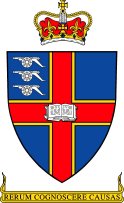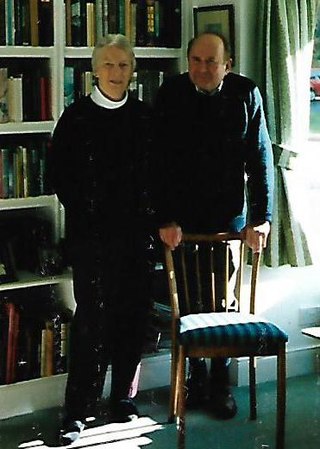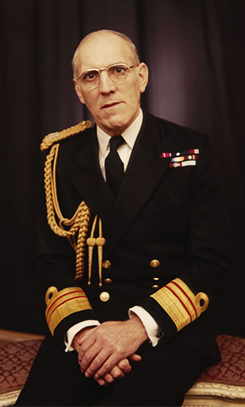Related Research Articles

Cranfield University is a British postgraduate-only public research university specialising in science, engineering, design, technology and management. Cranfield was founded as the College of Aeronautics (CoA) in 1946. Through the 1950s and 1960s, the development of aircraft research led to growth and diversification into other areas such as manufacturing and management, and in 1967, to the founding of the Cranfield School of Management. In 1969, the College of Aeronautics was renamed the Cranfield Institute of Technology, was incorporated by royal charter, gained degree awarding powers, and became a university. In 1993, it adopted its current name.

Sir Peter John Gregson, FREng was a British research engineer and chair of the Henry Royce Institute. He was previously the vice-chancellor of Cranfield University from 2013 to 2021 and president and vice-chancellor of Queen's University Belfast from 2004. Prior to that he was deputy vice-chancellor at the University of Southampton from 2000 to 2004.
Sir Geoffrey Allen was a British chemist who also served as a Vice-President of the Royal Society. He was primarily known for his work on the physics and chemistry of polymers. Allen was especially well known for his work on the thermodynamics of rubber elasticity. He inspired a generation of physical chemists as a result of his research interests, and he had a passion for fostering links between academia and industry.
Sir Rex Edward Richards was a British scientist and academic. He served as vice-chancellor of University of Oxford and as a director of the Leverhulme Trust.

William Augustus Tilden was a British chemist. He discovered that isoprene could be made from turpentine. He was unable to turn this discovery into a way to make commercially viable synthetic rubber.

Sir Graeme John Davies was a New Zealand engineer, academic and administrator. During his career, he was Vice-Chancellor of three universities: the University of Liverpool, the University of Glasgow and the University of London.
David Michael Patrick Mingos, FRS is a British chemist and academic. He was Principal of St Edmund Hall, Oxford from 1999 to 2009, and Professor of Inorganic Chemistry at the University of Oxford.

The Royal Military College of Science (RMCS) was a British postgraduate school, research institution and training provider with origins dating back to 1772. It became part of the Defence Academy of the United Kingdom in 2009, and ceased to exist as an independent unit in 2015.
Jeremy Keith Morris Sanders is a British chemist and Emeritus Professor in the Department of Chemistry at the University of Cambridge. He is also Editor-in-Chief of Royal Society Open Science. He is known for his contributions to many fields including NMR spectroscopy and supramolecular chemistry. He served as the Pro-Vice-Chancellor for Institutional Affairs at the University of Cambridge, 2011–2015.

Sir Graham Hills was a physical chemist, principal of the University of Strathclyde, and a governor of the BBC. He was born in Southend-on-Sea, Essex and educated at Westcliff High School for Boys and Birkbeck College, London. He was knighted in 1988 for his services to education.
Sir David Harrison FRSCM was a British chemical engineer and academic. He was vice-chancellor of the University of Keele from 1979 to 1984, vice-chancellor of the University of Exeter from 1984 to 1994, master of Selwyn College, Cambridge, from 1994 to 2000, and pro-vice chancellor of the University of Cambridge in 1997.
Sir Frank Hartley was a pharmacist who became Dean of the School of Pharmacy, University of London (1962–76) and later Vice-Chancellor of the university from 1976 to 1978.

Surgeon Vice-Admiral Sir James Watt was a British surgeon, Medical Director-General of the Royal Navy, 1972–1977 and maritime historian.
Frank Hartley may refer to:
Ram Charan Mehrotra was an Indian analytical and organometallic chemist, academic, educationist and the vice chancellor of the Universities of Delhi and Allahabad. He was known for his studies on the chemical theory of indicators, alkoxides and carboxylates of many elements. He was an elected fellow of the Indian National Science Academy, Indian Chemical Society, Chemical Society of London, Royal Institute of Chemistry, National Academy of Sciences, India and Indian Academy of Sciences. The Council of Scientific and Industrial Research, the apex agency of the Government of India for scientific research, awarded him the Shanti Swarup Bhatnagar Prize for Science and Technology, one of the highest Indian science awards, in 1965, for his contributions to chemical sciences.
Sir John (James) O'Reilly DSc PhD CEng FREng, FRAes FLSW was Vice-Chancellor of Cranfield University from 2006 to 2013. He is the son of Patrick William and Dorothy Ann O'Reilly. He has one son and one daughter.

Cecil Wilfrid Luscombe "Bill" Bevan, CBE was a Welsh chemist, academic, and academic administrator. He was Principal of University College, Cardiff from 1966 to 1987. He was additionally Vice-Chancellor of the University of Wales for two terms: 1973 to 1975 and 1981 to 1983.
The Very Revd John Frankland was an 18th-century academic and Dean in the Church of England.

Robin Jon Hawes Clark was a New Zealand-born chemist initially noted for research of transition metal and mixed-valence complexes, and later for the use of Raman spectroscopy in determining the chemical composition of pigments used in artworks.
References
- 1 2 3 4 5 6 7 8 "HARTLEY, Prof. Frank Robinson'", Who's Who 2013, A & C Black, Bloomsbury Publishing plc, 2013; online edn, Oxford University Press, Dec 2013; online edn, Dec 2015, retrieved 27 December 2015
- ↑ Florence, A.T. (19 February 1997). "Obituary: Sir Frank Hartley". The Independent. Retrieved 30 July 2024.